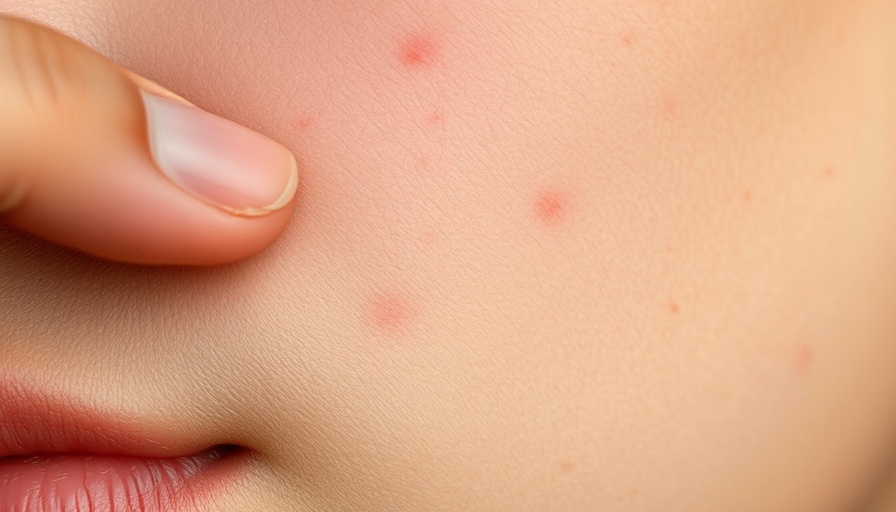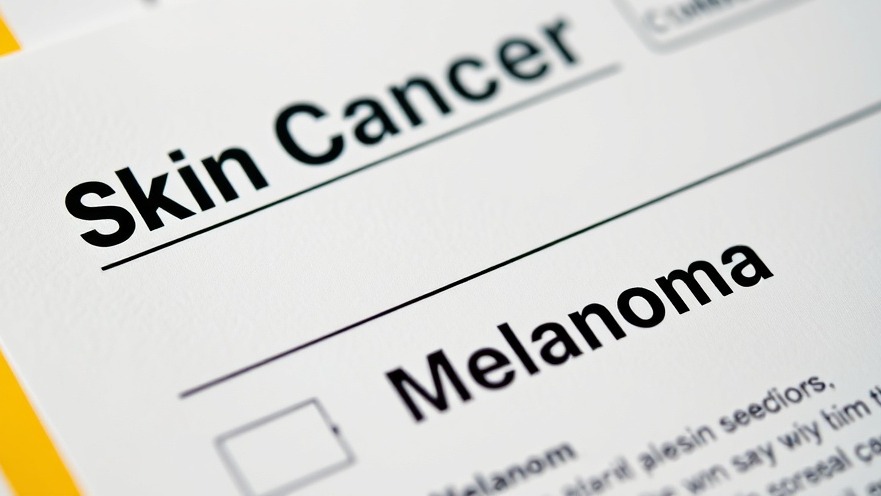
Unlocking the Mystery of Hidradenitis Suppurativa
Hidradenitis Suppurativa (HS) is a chronic, often debilitating skin condition characterized by painful lumps, abscesses, and scarring. It can significantly affect a person's quality of life, particularly among health-conscious career women who often juggle personal and professional challenges. Conventional treatments can be less effective for some patients, leading to the exploration of biologics as a groundbreaking alternative in managing moderate to severe HS.
What Are Biologics and Why Are They Important?
Biologics represent a new frontier in treatment options, derived from living organisms targeting specific immune system components. Their targeted approach makes them particularly promising for treating HS, which has frustrated many patients with traditional therapies. The use of biologics not only opens doors to better symptom management but also tackles the underlying inflammatory processes that contribute to HS manifestations.
Adalimumab: Leading the Charge in HS Treatment
Among the biologics, Adalimumab (Humira) has gained recognition for its efficacy in treating HS. This TNF-α inhibitor was initially developed for rheumatoid arthritis and has since received FDA approval for HS. The pivotal PIONEER trials highlighted that approximately 42% to 59% of treated patients achieved a significant reduction in symptoms within 12 weeks, underscoring its role as a cornerstone therapy.
Infliximab: Another Weapon Against Severe HS
Infliximab (Remicade), a monoclonal antibody against TNF-α, boasts an impressive success rate among patients who have not responded to more conventional treatments. In an open-label study involving seven patients, every participant demonstrated marked improvement—the implications for those suffering from severe HS are profound, as approximately 82% of individuals reported significant symptom relief. This makes Infliximab a strong contender for patients in dire need of effective management solutions.
Catalyzing Change: Ustekinumab’s Role
Ustekinumab (Stelara) inhibits interleukins 12 and 23, exhibiting promising potential in reducing HS symptoms. Although primarily investigated in the context of other inflammatory skin disorders like psoriasis, initial findings suggest that Ustekinumab may offer a new direction for HS treatment, supporting the pursuit of a clear skin diet that can enhance biologic efficacy.
Integrating Nature’s Pharmacy: Herbs and Diet for Skin Health
While biologics represent a significant step forward in managing HS, integrating herbal remedies and nutritional approaches can further bolster skin health. Consider adopting a clear skin diet rich in antioxidants and anti-inflammatory herbs. For instance, herbs like chamomile and calendula have been traditionally valued for their skin-soothing properties. Exploring what tea is good for skin health, such as green tea for its high antioxidant content, may also yield positive benefits.
Future Directions: The Ongoing Search for Solutions
The research surrounding HS and biologics is rapidly evolving, with clinical trials continually assessing new therapeutic options. As understanding deepens, future therapies may combine the precision of biologics with integrative approaches involving herbs for skin problems, suggesting a holistic pathway to treatment.
Your Skin Health Journey Starts Today
As a health-conscious career woman dealing with Hidradenitis Suppurativa, uncovering the right treatment strategy is essential. Consult with a healthcare provider to keep abreast of the latest research and treatment options.
With new insights into biologic therapies and conventional practices, empowering oneself through knowledge is vital. Whether considering prescription biologics or exploring herbs for skin health, staying informed opens doors to effective management strategies.
Ready to take control of your skincare journey? Explore options for subscriptions that can make healthcare more accessible and provide ongoing support for your skin health needs.
 Add Row
Add Row  Add
Add 




 Add Row
Add Row  Add
Add 

Write A Comment